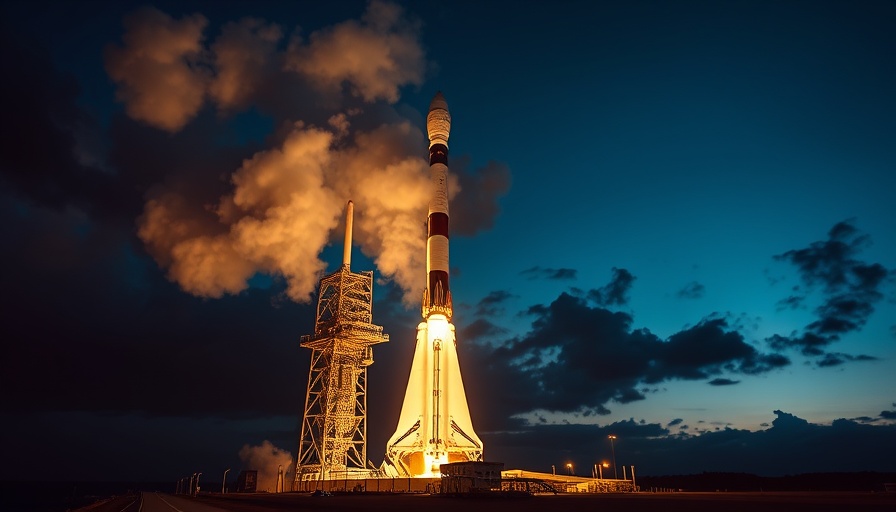
The Launch of Amazon's Kuiper Satellites Impacted by Weather
Amazon's ambitious Project Kuiper to provide global internet access faced a setback as the first batch of satellites was scheduled for launch on April 9, 2025, from Cape Canaveral Space Force Station in Florida. The United Launch Alliance (ULA) Atlas V rocket was poised to lift 28 of the company’s internet satellites into orbit when inclement weather forced a scrub of the mission. Persistent clouds and rain in proximity to the launch pad violated necessary weather parameters.
The Significance of Project Kuiper in the Space Market
This launch was highly anticipated, marking Amazon’s serious foray into the competitive satellite internet sector, directly challenging SpaceX's Starlink service. Project Kuiper aims to establish a network of 3,200 satellites designed to provide high-speed broadband service to underserved regions worldwide. With this ambitious project, Amazon is not only enhancing its vast logistics and streaming capabilities but also aiming to redefine global internet accessibility.
Challenges in the Launch Process
The primary issue leading to the postponement was the thick cumulus clouds and rain bands that lingered near the launch site, key factors ULA’s launch team highlighted during the two-hour launch window. Caleb Weiss, a ULA commentator, confirmed the cancellation after monitoring the rapidly changing weather conditions. Despite some technical glitches during the countdown, safety remained the top priority, which delayed the launch to an undetermined future date.
What Happens Next for Project Kuiper?
ULAs Atlas V rocket was not the only launch vehicle in Amazon’s arsenal; the company is leveraging multiple launch partners, including Blue Origin’s New Glenn and Arianespace’s heavy-lift rockets, to expedite the deployment of the Kuiper constellation. This flexibility allows Amazon to quickly adapt their strategy if weather or technical issues prevent launches. Amazon previously tested two prototype Kuiper satellites in late 2023, and their operational capacity is crucial for setting the stage for the next launch opportunity.
The Future of Satellite Internet Services
The growing presence of satellite constellations for internet services marks a significant moment in both the tech and aerospace sectors. As we see more companies like Amazon join the race with innovative solutions capable of transforming connectivity, the landscape of global internet access could drastically change. This urgent demand emphasizes the potential of satellite-based technologies to connect the unconnected, fostering inclusivity in the digital age.
As the industry moves forward, staying informed on upcoming satellite launches, their impacts, and the acrid competition among giants like Amazon and Starlink will be pivotal for understanding the future of internet connectivity.
 Add Row
Add Row  Add
Add 




Write A Comment